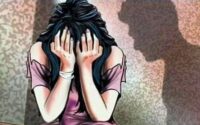COVID’S YET ANOTHER VICTIM: ORPHANS
This article has been written by Samridhi Prakash from Symbiosis Law School, Noida.
BACKGROUND
The Covid pandemic has left in its wake another innocent bystander suffocating – children. With the virus strangling the life out of their families, children as young as 6 months old are left to face this world alone. Families of these orphaned children have shut their doors, raising concerns about the possibility of infection. The emotional distress and anxiety among the children are at an all-time high, with news channels as well as social media flooding with cries of help. This issue has come under the radar in the second wave of the pandemic, flagging the flawed adoption system of our country. In this article we will look at the various adoption processes in India and how the current situation is being exploited for trafficking children, the role of NGOs and what must be done by the citizens as well as the State authorities to ward-off the impending crisis.
LAWS RELATED TO ADOPTION IN INDIA
Adoption in India is governed by personal laws, and due to the diversity of religions practised in our country, there are primarily two sets of laws that apply. As formal adoption is prohibited in certain religions, the Guardians and Wards Act of 1890 governs Muslims, Christians, Parsis, and Jews. Hindus, Sikhs, Buddhists, and Jains, on the other hand, adhere to the Hindu Adoption and Maintenance Act, 1956. As per UNICEF data, India has 29.6 million abandoned and orphaned children. These children are vulnerable and often end up becoming victims of sexual violence, human trafficking while some rare few are taken up by adoption agencies and put on waiting lists.
HINDU ADOPTION AND MAINTENANCE ACT, 1956
Every Hindu, male or female, has the legal power to adopt if they have reached the age of majority and are of sound mind, according to modern Hindu law. The Hindu Adoption and Maintenance Act, 1956 enumerates the majority of these laws, norms, and regulations. This Act addresses issues such as the capacity to adopt, the capacity to give in adoption, the effect of adoption, gender bias, and other issues.
GUARDIANS AND WARDS ACT, 1890
The Guardians and Wards Act of 1890 was enacted to supersede all previous legislation on the subject. Except for the state of Jammu and Kashmir, it became the sole non-religious universal law governing the guardianship of children. This rule is especially ordained for Muslims, Christians, Parsis, and Jews because their personal laws only allow for guardianship rather than complete adoption.
JUVENILE JUSTICE ACT, 2015
The existing Central Adoption Resource Authority (CARA) has been designated as a statutory organisation to enable it to perform its role more efficiently in order to sort out adoption procedures for orphaned, abandoned, and surrendered children. Adoption is covered in its own chapter (Chapter VIII), which contains comprehensive provisions on the subject.
CURRENT SITUATION- #COVIDORPHANS
Children have become the masked, invisible victims of this catastrophe. A child’s emotional, social and cognitive development is adversely affected due to parental loss. It hampers their mental well-being, giving rise to depression, anxiety, unhealthy sleep patterns, and in most cases, strikes at the economic stability of the family, leading to loss/decline in access to education.
On social media, stories of orphaned and abandoned children have begun surfacing, interrupting hospital distress calls for emergency oxygen supplies. Covid-19 has killed almost 2,50,000 people in India in the last year—mothers, fathers, aunts, grandparents, adults who have left voids in families, and heartbroken children. Due to a recent spike of similar deaths, the hashtag “covidorphan” began trending on social media. Adoption requests for “covidorphan” children are also being spread via WhatsApp forwards, along with their residential addresses and photographs. Activists point out that such posts and ads are in violation of Sections 80 and 81 of the Juvenile Justice (JJ) Act, 2015, which ban giving or receiving children outside of the Act’s processes, as well as their sale and purchase. Such activities are punishable by three to five years in prison or a fine of one lakh rupees.
There is no official figure of how many “covidorphans” there are. In the next few weeks, many more children are likely to lose their parents. However, in the midst of the retweets and reposts, the emotional health of children whose parents are either in the hospital, or have lost the battle is not receiving enough attention.
CHILDREN AS VICTIM: TRAFFICKING, EXPLOITATION ETC.
Experts anticipate that the global mortality toll from COVID-19 could reach 10 to 40 million, leaving many children without one or both parents or other caretakers. Orphaned children are especially prone to human trafficking and other forms of exploitation, such as sexual exploitation, forced begging, street peddling, and other forms of child labour. Elder siblings are often forced to drop out of schools in order to support their family financially, and also to look after their younger siblings.
Meenu Mehta, head of the West Delhi Child Welfare Committee (CWC), believes that trafficking is on the rise. Despite so many messages being posted on WhatsApp in the last three weeks, no child has been registered as orphaned in her district, raising questions and doubts we fear answers to. Despite COVID and the 30,000 waiting families, there are only 2289 children available for legal adoption in India right now.
STEPS TAKEN BY AUTHORITIES
The Women & Child Development Ministry has drawn out a lawful mechanism for the rehabilitation of children who have lost their parents to Covid-19, advising the public to desist from partaking in or promoting posts for adoption being circulated on social media, which is in violation of legal regulations;
Persons interested in adopting orphan children should contact the Central Adoption Resource Authority for legal adoptions, according to the ministry;
The regulatory authorities have informed that if you have information on a child in need of care, call one of the four agencies listed below: Childline 1098, the district Child Welfare Committee (CWC), the District Child Protection Officer (DCPO), or the State Commission for Protection of Child Rights’ helpline;
The YS Jaganmohan Reddy-led government in Andhra Pradesh has asked officials to set aside a sum of ten lakh rupees for each kid who has lost both parents as a result of the Covid-19 illness;
Apart from rehabilitating orphaned children, the Odisha government stated it will care for children whose parents had to be hospitalised owing to the coronavirus sickness (COVID-19). The state Women and Child Development and Mission Shakti department has designated joint secretary Rega Geetarani Pattanayak to identify and care for children orphaned by COVID-19;
Himachal Pradesh Chief Minister Jai Ram Thakur has announced monthly Rs.2,500 grant to the orphaned children till they attain majority
Punjab government announced that children orphaned by the Covid pandemic will receive Rs. 1,500 per month as a social security pension, as well as free education up to graduation, etc.
IS THIS ENOUGH?
Instead of publishing advertisements asking other people to report single and double orphans, the government should proactively utilise its own database of deaths caused by Covid-19 and not place primary reliance on helplines. Cash transfers being announced by states no doubt will aid the children financially and support their education but it is not enough to keep them away from labouring post-school/coaching. The Right to Education section 12(1)(c) provides for free education of orphans in the private school of their choosing and despite confirmed seats the situation is not so in practice. An endless documentation process follows these and other assistive policies which hamper their implementation. Insistence on death certificate and Covid-19 positive test report submission is a practice in vain as the State authorities already have the required data in their database. Roles played by NGOs and other State welfare commissions are very crucial in our fight against exploitation of children. Instead of going for adoption, kinship care should be prioritised as it helps the child to retain the known family institution and not suffer another trauma of settling in another atmosphere.
REFERENCES
Orphans |Press Centre|, UNICEF (June 16th 2017) https://www.unicef.org/media/media_45279.html
Hindu Adoption and Maintenance Act, 1956, s.7.
Hindu Adoption and Maintenance Act, 1956, s.9.
Guardians and Wards Act, 1890, Childline India Foundation, http://www.childlineindia.org.in/Guardians-and-Wards-Act-1890.htm
Juvenile Justice (CARE AND PROTECTION OF CHILDREN) Act, 2015- http://cara.nic.in/PDF/JJ%20act%202015.pdf
Juvenile Justice (CARE AND PROTECTION OF CHILDREN) Act, 2015, supra
COVID-19’s Devastating Impact on Children, HRW.ORG (April 9th 2020) https://www.hrw.org/news/2020/04/09/covid-19s-devastating-impact-children
Curated by Shivanshika Samaddar of National Law University, Delhi.


